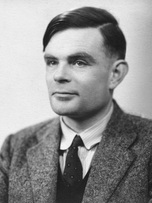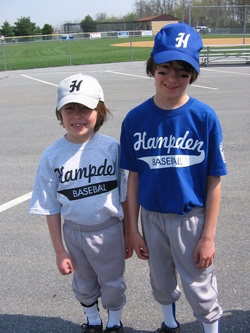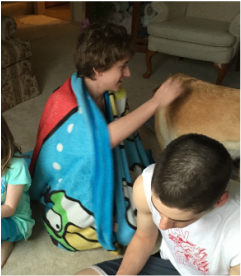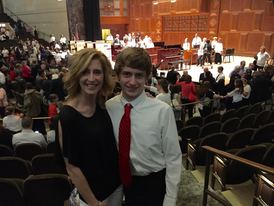
I thought Alan Turing was brilliant, fascinating....and autistic. I immediately Googled, "was Alan Turing autistic" and quickly discovered there were many others who saw autistic traits in this often misunderstood genius.
There is no way to determine if Alan Turing fell somewhere on the autism spectrum, but, there were certainly a lot of traits that made me (and others) speculate. Alan was a genius in both math and deciphering and enciphering encrypted messages. He also didn't like it when his peas and carrots touched. Alan ate an apple every night before bedtime. He struggled understanding sarcasm and picking up social cue. Alan also had trouble relating to his peers, so, he had a hard time making friends. Hmmm...what would the DSM-V say?
Along with his genius IQ and his social quirks, Alan Turing was also gay at a time when being gay was not only socially unacceptable, it was against the law. As a result, Alan Turing was forced to pretend to be someone he was not in order to conform to the way society expected him to be rather than having society accept him as he was. Being a brilliant, quirky, socially awkward, gay man was not the majority, so Alan felt obligated to play The Imitation Game. Sadly, the results were tragic.

There were many times over the years I forced Ryan to try this activity or that activity because that's what "EVERYONE is doing' and by "EVERYONE" I meant the neurotypical majority. In other word, imitate the majority, do what your neurotypical peers are doing because that is what people expect, that is what people want to see, that is what makes people comfortable.
Conform, don't stand out. Be the same, don't be different. Imitate, don't be true.
Sure, I understand that Ryan needs to have good manners, learn what is appropriate and what is not, and I want him to be a successful contributing member of the neurotypicals that makes up the majority of our society, but, I also want Ryan to hold on to the essence of who he is, of who and what makes Ryan, Ryan and to never, ever feel shame for doing so.
As I felt my old friend Guilt pounding on my front door ready for her daily glass of wine, a thought occurred to me. A thought that shifted my entire way of thinking that had me re-writing this entire blog post. It's not Ryan or people living with autism who are playing The Imitation Game, it is the rest of us. We are the ones who so often spend our days imitating, not Ryan. For the most part, when the neurotypical majority is not nagging him, Ryan is confident in who he is, and he is not imitating anything or pretending to be someone he's not, while trying to conform to the majority. No, that's the rest of us.

Yes, we neurotypicals are all guilty of playing The Imitation Game and although chances are it won't cost us our lives like it did Alan Turing, it does certainly make one wonder how much better life would be if we just quit imitating. But, chances are, we won't.

Ryan has worked so incredibly hard to do what the neurotypical society expects of him in some ways, but, there is no one I know who has remained more true to who he is, who he is meant to be, and who smiles happily and proudly with that decision. I know there are days it is difficult for Ryan, I know there are days he has "mixed feelings about his ASD diagnosis", and I know there are occasional moments, where for a fleeting second he wonders what it's like to be a Jones, but, I think on most days, in most moments, Ryan could care less if he ever rolls the dice and takes a turn playing The Imitation Game.
He wins. We lose.
There was a quote from The Imitation Game movie that I believe is so profound and so true, that every time I read it, write it, or say it, I see a beautiful 13 year old boy with an amazing future. After Alan had suffered endlessly at the hands of his classmates, the Joneses who he refused to keep up with, Alan's one and only friend said,
"Sometimes it is the people no one imagines anything of, who do the things that no one can imagine."

As the tears rolled down my cheeks watching the final scenes of The Imitation Game, I found it so utterly tragic that Alan Turing was forced to play the game and tragically lose, just so others could win. I can't help but wonder what other contributions Alan would have made had society just accepted him as he was. Clearly, deciphering the encrypted Nazi code, ending a World War and saving millions of lives just wasn't enough. I wonder what is?


 RSS Feed
RSS Feed
